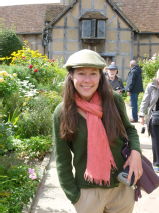French Cultural Landmarks: Love, Language and Power
| Module Code: FR122 |
|---|
| Module Name: French Cultural Landmarks: Love, Language and Power |
| Module Coordinator: Dr Margaux Whiskin |
|
Lectures are recorded and seminars are delivered face-to-face |
| Module Credits: 30 |
This module is taught both in French and in translation for those students who do not have A level French. All students with A level- or equivalent experience - of studying texts and essay writing in Arts and Humanities subjects (foreign languages, History, English, Film, Theatre, Classics, Philosophy, etc...) welcome!
French is the language of love, or so the saying goes....
Module Description
This module will introduce you to the history of that association, while enabling you to explore what love, desire and sex might mean in earlier periods and how this might challenge our views of these states today. We will ask how French as a language of love has been used, over time, to express social preoccupations (about gender, power, political engagement) and emotional preoccupations (about self and other, intimacy, rejection, joy).
You will be invited to explore these areas by examining such questions as:
-
What do love and desire mean at different points in time: in the Middle Ages? In the 19th century?
-
Can we talk about ‘sexual identity’ in periods prior to the 19th century?
-
How are love and sex connected to society and the forms of power that operate through social structures?
-
How is sex used as a political tool: in times of war or of social turmoil?
Landmarks: 'The classics help us to understand who we are and where we stand...'
Calvino, Why Read the Classics?
You will investigate these questions in relation to landmark moments in French culture and some of the major genres associated with those moments:
-
French expressions of courtly love and romance in the Medieval period
-
Explorations of love, power and identity in a Renaissance woman's sonnets
-
The heyday of classical theatre with Racine and the staging of flamboyant Frenchness with Rostand
-
Short stories as critiques of social and sexual behaviour in Renaissance and 19th-century France
-
French novel writing: gender, identity and society in the 18th-century novel
Across the module we will look at a range of male and female writers and we will consider how gender influences pre-20th century writers. For those who do not have A level French, the texts may also be studied in translation.
Assessment:
2 summative essays of 1200 - 1500 words
1 exam with 2 questions
Syllabus and reading list
The material for study this year, presented in the order in which it will be covered, can be found here:
- Françoise de Graffigny, Lettres d’une Péruvienne, MLA Texts and Translations Series (New York: Modern Language Association of America, 1993). / Letters from a Peruvian Woman, trans. by David Kornacker, MLA Texts and Translations Series (New York: Modern Language Association of America, 1993).
- Marguerite de Navarre, l’Heptaméron, ed. by Simone de Reyff (Paris: Flammarion, 1990) (selected tales: see especially numbers 4, 5, 15, 18, 22, 23, 32, 33, 40, 41, 43, 48, 56, 59, 62, 72, and the Prologue) / The Heptameron, trans. by Paul Chiltern (Harmondsworth: Penguin Classics, 1984)
- Guy de Maupassant, Boule de Suif (Paris: Folio, 2014) Folio classique series / A Parisian Affair and Other Stories, trans. by Sian Miles (Harmondsworth: Penguin, 2004)
- Jean Racine, Phèdre (Paris: Larousse, 2011) Petits classiques Larousse series / Iphigenia ; Phaedra ; Athaliah trans. by John Cairncross (Harmondsworth: Penguin, 1970, repr. 2004)
- Edmond Rostand, Cyrano de Bergerac (Paris: Hatier, 2012). Classiques & Cie Lycée series. / Cyrano de Bergerac, trans. by Carol Clark (Harmondsworth: Penguin, 2006)
- Marie de France, Guigemar and Lanval in Marie de France, Lais de Marie de France, ed. Karl Warnke and trans. L. Harf-Lancner (Paris: Livre de Poche, 1990) / The Lais of Marie de France, trans. by Glyn Burgess (Harmondsworth: Penguin, 1999)
- Anon, La Châtelaine de Vergy., ed. Jean Dufournet and Liliane Dulac (Paris: Gallimard, 1994) / The Chatelaine of Vergy, trans. by Alice Kemp-Welch (Cambridge, Ontario: In Parentheses Publications, 1999) http://www.yorku.ca/inpar/vergi_kemp.pdf
- Louise Labé, Complete poetry and prose: a bilingual edition, ed. Deborah Lesko Baker, trans. Deborah Lesko Baker and Annie Finch (Chicago: University of Chicago Press, 2006)
Reading suggestions (these are both very accessible – they provide a good ‘way in’ to the module):
- John D Lyons, French Literature: a Very Short Introduction (Oxford: Oxford University Press, 2010)
- Brian Nelson et al, The Cambridge Introduction to French Literature (Cambridge: Cambridge University Press, 2015)




